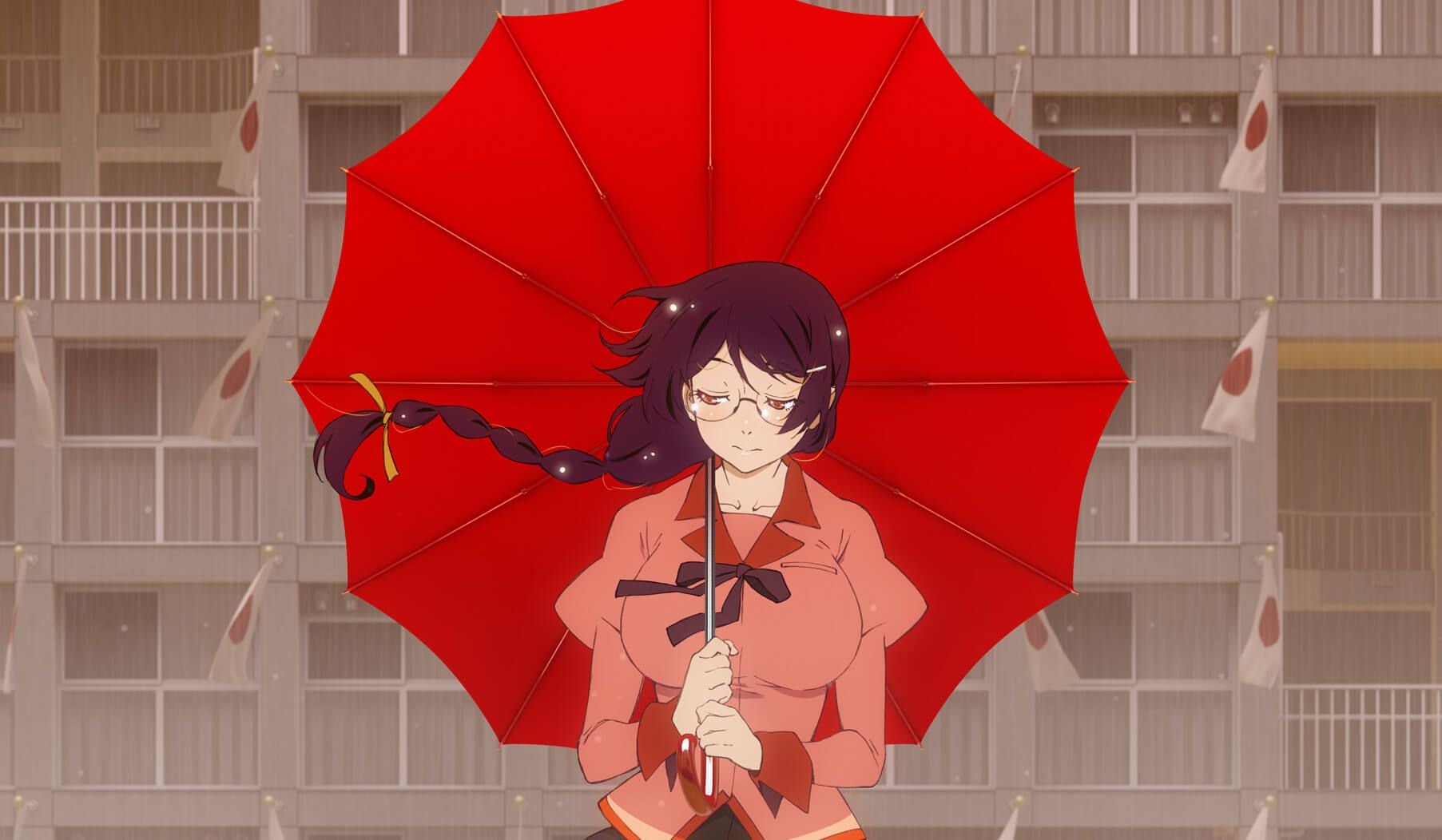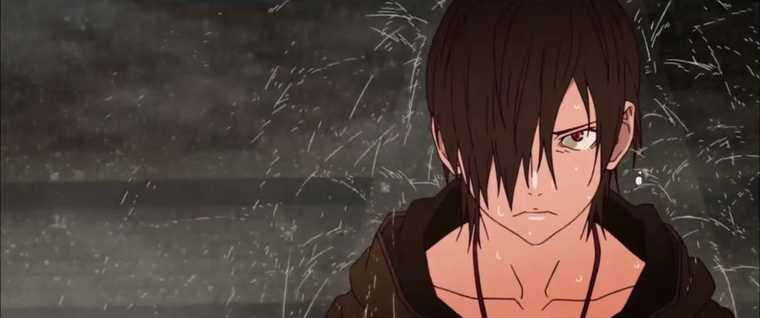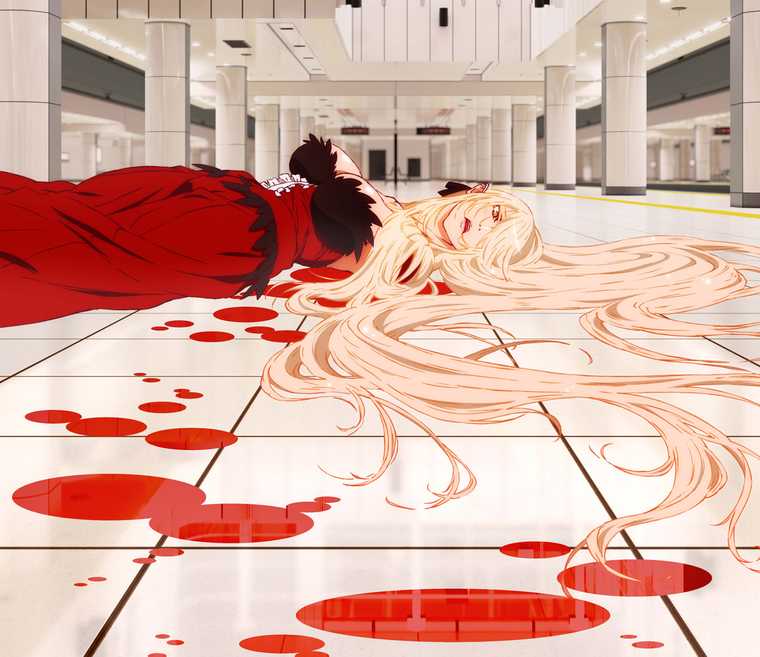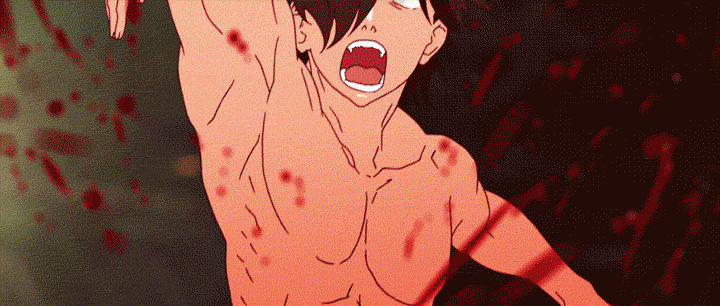
Kizumonogatari III: Reiketsu
The final film in the Kizumonogatari trilogy presents old ethical thought experiments with a helping of supernatural apparitions and teenage angst.
Scotland Loves Animation has not long finished another festival year, featuring films such as Lu Over the Wall, Fireworks, Should We See It from the Side or the Bottom?, Your Name., and classics including Osamu Tezuka’s Metropolis and the late Satoshi Kon's Tokyo Godfathers. It's always a great excuse to leave the house as the cold weather starts creeping in.
This year there was a film that excited me more than others. Namely, Kizumonogatari III: Reiketsu. Having watched parts one and two the previous year, I had waited patiently to enjoy the concluding part in the trilogy.
From here on, I’ll discuss plot points and review areas which may spoil the film for those who intend to watch it. Also, some of the animated footage and promotional screens contain exaggerated levels of gore and violence.
The Trolley Problem… but with vampires
The Trolley Problem is an age old thought experiment, which is as follows: If you are presented with a situation where a runaway tramcar/train will kill 5 people, but can be diverted to only kill one person by pulling a lever, will you pull it?

It's an unenviable position to find yourself in, with no correct answer, but the question itself encourages conversation and debate. By bringing these kind of ethical dilemas into the plot of a film, it encourages discussion long after a single viewing. It raises questions instead of simply feeding the audience with answers. How would I have acted in their position? What if they made a different choice?
It's precisely this kind of moral quagmire that our plucky young hero finds himself in as the trilogy reaches its climactic ending.
True to its name, the Monogatari franchise is good at telling stories and it does so largely by the author, Nisio Isin's literary technique. With clever dialogue and juxtaposition, the animated medium also allows for cleverly timed visual metaphors and foreshadowing via scene composition, not to mention the addition a wonderful soundtrack.

In the previous films, we are introduced to Araragi Koyomi - high school student and self-imposed loner. In a naive attempt to "do the right thing", he selflessly (literally) sticks his neck out to save a dying vampire. From there, he faces off against 3 superhuman foes in order to win back her stolen limbs and to regain his own humanity in return.

Realising that returning her stolen limbs has helped her regain her full power, Araragi suffers from the guilt of enabling a vampire to kill and devour humans. Faced with this, his only option is to confront Kiss-shot in a battle he can't win. Furthermore, he accepts his likely demise as penance for his mistake.
There are only 4 characters, each with strong archetypes, contrasting against each another: Our protagonist and narrator, Araragi Koyomi. A 500-year-old vampire dubbed the King of Apparitions, affectionately referred to as Kiss-shot. Class representative and straight-A student, Hanekawa Tsubasa, who previously befriends Araragi. And Oshino Meme, the wandering priest, an expert in apparitions.
The film does feature an incredible animated fight sequence which could give even the best Shonen series a run for their money, but a lot of time is spent exploring the choice Araragi is expected to make. As a result of using so few characters, and being a dialogue heavy film, the audience is able to gain a lot insight on each character. It becomes easy for us to choose favourites, siding with the point of view we most associate with.

Kiss-shot goads Araragi to end her life, which for some time has been without any meaning, and naturally he hesitates. Because despite mathematics being the only subject he excels at, he knows that taking even one life to save countless others can't be rationalised.
Araragi himself becomes the switch, presented with the option to slay his master or instead gamble on her threat to kill thousands of humans, knowing that their blood will be on his hands for saving her in the first place.
In the end, all Araragi can do is throw himself on the tracks, choosing a third option which didn't exist.
A choice by which nobody is happy, but everyone is equally miserable.
Thanks for reading! It isn't often I'm able to write about anime in this way, but it was a lot of fun. I've enjoyed the Monogatari series for some time, and it's definitely worth checking out if you enjoy literature, etymology and character study.
The Kizumonogatari films are a precursor to the first Bakemonogatari series which first aired in 2009. The events of this film were often referenced vaguely, and returning to the series now certainly offers a different perspective on the story and its characters.
Anime blogger chaostangent (@chaostangent) wrote a nice piece reviewing the Kizumonogatari films in more detail (and far more eloquently) than I have. Give him a follow if you're an anime fan, he produces some really great content.
You can also check out the trailer below.
For 7 years Scotland Loves Animation has offered eager fans, including myself, the opportunity to binge watch the latest and greatest in Japanese animation. Additionally, the festival regularly invites guest animators from Japan to discuss their work, and run workshops.
You can follow them on Twitter or Facebook for up-to-date information on their future events.
